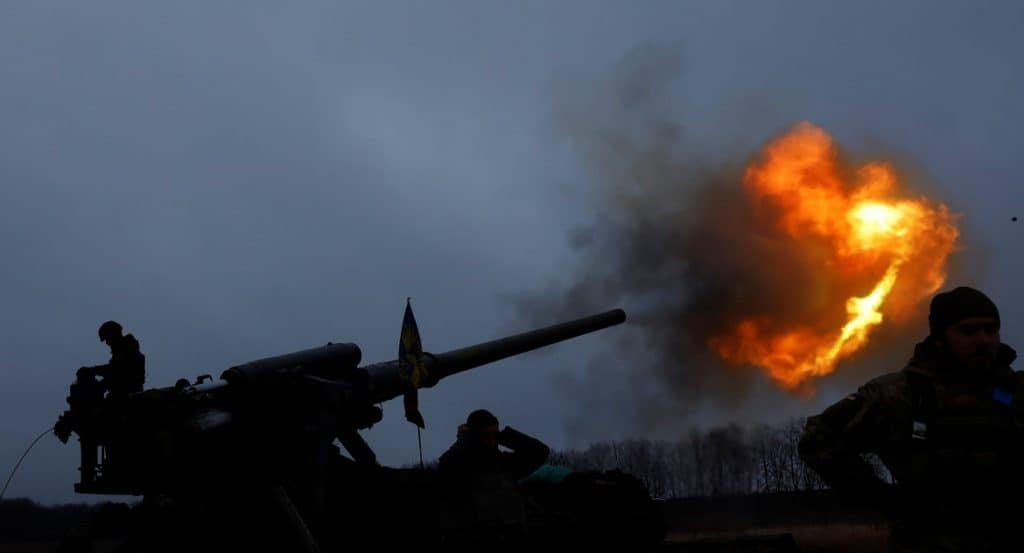By Nikola Mikovic
The Ukraine war was probably the most significant world event in 2022. Judging by the current developments on the ground, chances for Kyiv and Moscow to reach a peace deal in the near future remain rather slim. But will hostilities in the Eastern European country lead to a large-scale escalation in 2023?

What is widely seen as the largest war on European soil since World War II has triggered the process of “decoupling” between the European Union and the Russian Federation. The EU has imposed sanctions on Moscow and is seeking to completely stop importing Russian gas and oil, while Russia’s energy flows have already started moving eastward. The problem for the Kremlin is that switching to the Asian market is a long-term process, and it is rather questionable if time is on Russia’s side. The EU, for its part, has started learning to live without Russian energy, although there is no guarantee that shortages of oil and natural gas will not hit European countries in 2023.
But despite sanctions and tense relations, the Kremlin and the West have preserved diplomatic and military lines of communication, reportedly aiming to prevent any major incidents that could lead to a direct confrontation between Russia and NATO. That, however, does not necessarily mean that the Ukraine war will not eventually lead to a direct involvement of other actors, namely NATO member Poland and Russia’s ally Belarus. Such an outcome would have an impact on entire Europe.
The current diplomatic stalemate has set stage for an escalation of the conflict. At this point, it remains unclear if major military offensives – whether Russian or Ukrainian – in the Eastern European nation will take place during or after the winter. What is almost certain, though, is that intensification of hostilities is inevitable, given that the United States and its allies will undoubtedly continue providing Ukraine with weapons, and encouraging Kyiv to resolve the conflict on the battleground, rather than at the negotiation table.
The Kremlin, for its part, will likely formally insist on a dialogue with Ukraine, although the Russian policy makers are quite aware that Kyiv does not intend to get involved in any negotiations until it achieves its very ambitious military and political goals. From Ukraine’s perspective, a ceasefire deal is possible only after the Russian troops withdraw to the pre-February 24 de facto borders. For Moscow, such an outcome would represent a clear defeat. Thus, it is not very probable that Russia and Ukraine will sign a peace, or a ceasefire agreement in the first half of 2023. Instead, heavy fighting will continue, since that will be the way for Moscow and Kyiv to strengthen their negotiating positions.
But the longer the hostilities drag on, the more unnecessary sacrifices there will be on both sides. Moreover, Europe will also feel the consequences of the Ukraine conflict that has already had a serious impact on the global economy. Record-high inflation rates have eroded the value of people’s wages in several European countries, and the EU economies are unlikely to have significant economic growth in 2023. That, however, does not mean that the economic situation at home will force the Western leaders to turn their back on Kyiv. For the West, particularly for the United States, Ukraine serves as a battlefield where a new Cold War is fought. By giving up support for Ukraine, the U.S. would demonstrate a serious weakness, which would have an enormous impact on its position in the global arena. That is why Washington will continue arming and funding Kyiv as long as it takes.
From Moscow’s perspective, what is happening in Ukraine can have far-reaching repercussions for the very existence of the Russian Federation. Indeed, unless the Kremlin radically changes its military and political approach regarding Ukraine, all the countries that have traditionally been in Russia’s geopolitical orbit will start turning their back on Moscow. If Russia cannot resolve the conflict in its favor, its allies will almost certainly seek to distance themselves from the Kremlin. That is why, for Russia, the Ukraine war represents the most important geopolitical challenge. And so will certainly be in 2023.
Finally, the peace process will heavily depend on the situation on the ground. If the Ukrainian army continues making gains, Kyiv, strongly backed by the United States, will not rush to restart negotiations with Moscow. If, however, Russia manages to improve its military performances, and make significant breakthroughs in various directions, the West will immediately begin to pressure the Kremlin to de-escalate, and potentially sign a ceasefire deal with Kyiv. But at this point, we are still too far from such developments. Hard times and heavy fighting await both Russian and Ukrainian militaries.
Thus, 2023 – or at least the first half of the year – is unlikely to bring any positive developments for the people living in the two countries.
Author: Nikola Mikovic (Journalist, researcher and analyst based in Serbia. He covers mostly the foreign policies of Russia, Belarus and Ukraine)
(The views expressed in this article belong only to the author and do not necessarily reflect the views of World Geostrategic Insights).
Image Credit: Reuters







